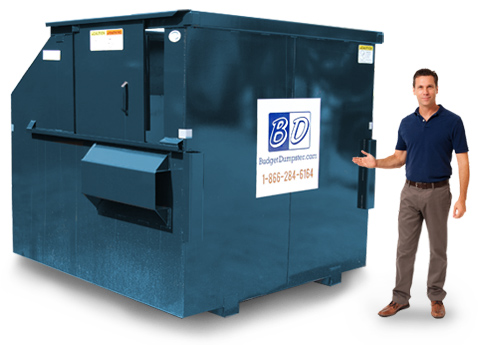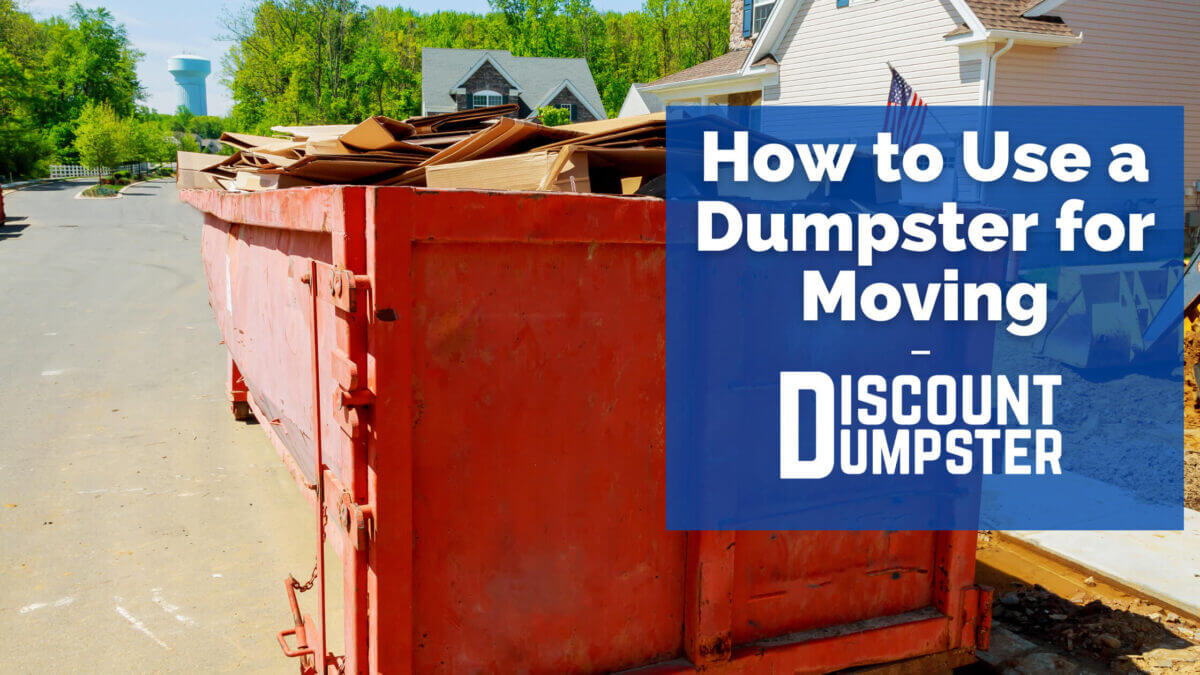Achieving a successful dumpster rental experience requires a thoughtful approach. Beginning by setting clear project goals, identifying your dumpster requires, and looking into local companies Compare prices, choose the appropriate size, and prepare for delivery logistics. Warranty compliance with local laws and prepare the drop-off website. Effective waste management is key, consisting of segregation, loading methods, and timely pick-ups. Evaluation and finalize the rental agreement to stay clear of misunderstandings. By following these necessary steps, you'll be well on your means to a smooth dumpster rental experience; and with a deeper understanding of the procedure, you'll be able to browse also the most intricate jobs with confidence.
Set Clear Project Goals
What specific objectives do you aim to achieve with your project? Establishing clear goals is important to an effective dumpster rental experience.
Define the scope of your project, including the type of waste you'll be creating, the period of the rental period, and the called for dumpster dimension. Consider the purpose of the leasing, whether it's for a home renovation, construction task, or special event. This quality will certainly assist you establish the necessary sources, consisting of the number of dumpsters and frequency of waste collection.
Having clear goals likewise enables you to establish practical timelines and budget plans. You'll be able to assign resources a lot more efficiently, making sure that your job stays on track.
Additionally, clear goals assist in effective communication with your dumpster rental carrier, making sure that they comprehend your needs and can offer the essential support. By setting details objectives, you'll be better furnished to handle your task's waste monitoring needs, causing a more effective and stress-free experience.
Determine Your Dumpster Needs
How much space will you need to fit the waste generated by your project? Establishing your dumpster needs is a necessary step in the rental process.
Start by estimating the volume of waste you'll generate. Take into consideration the sort of task, the products included, and the number of people working on the site. This will assist you select the right dumpster size Common sizes array from 10 to 40 cubic yards, with 20 and 30-yard dumpsters being one of the most popular.
Think concerning the weight of the waste as well. Heavy materials like concrete or asphalt may require a bigger dumpster, while lighter materials like drywall or roof covering roof shingles can be suited by a smaller sized one.
Additionally, consider any specific requirements, such as a dumpster with a securing cover or one that's accredited for dangerous materials. By properly reviewing your dumpster requires, you can ensure a smooth and reliable waste monitoring process, conserving you money and time in the lengthy run.
Research Regional Dumpster Companies
http://piedmont-triaddumpsters.tearosediner.net/top-factors-to-consider-for-dumpster-rentalsOnce you have actually determined your dumpster needs, the next action is to research local dumpster companies that can supply the appropriate devices for your task. This entails identifying firms that operate in your location and provide the sort of dumpsters you need.
You can start by looking online for dumpster rental firms in your city or region. Inspect their web sites, reviewed reviews, and ask for references from buddies, family, or associates that have actually utilized dumpster rental services before. Make a listing of prospective companies that fulfill your requirements.
When looking into local dumpster business, think about variables such as their online reputation, experience, and range of services offered. Try to find companies that are licensed, guaranteed, and certified to operate in your area.
Also, check if they have a wide range of dumpster sizes and types to pick from, in addition to adaptable leasing periods and convenient delivery alternatives. By doing your research, you can discover a reliable and trustworthy dumpster rental company that fulfills your details demands and budget.
Compare Dumpster Rental Prices
Several variables contribute to the general expense of dumpster rental, and understanding these variables is important to comparing prices effectively.
These aspects include the type and size of the dumpster, rental duration, weight capacity, and any kind of extra solutions such as delivery, pickup, and disposal fees Moreover, area, gas prices, and regional regulations also affect the final cost.
When contrasting rates, it is very important to take these variables into account and assure you're comparing apples to apples.
Be wary of business that price estimate small cost however charge added for solutions like shipment or disposal. Rather, search for firms that supply transparent pricing, consisting of all the required services.
Additionally, ask about any discounts or promotions that may be readily available, such as package offers or loyalty discounts.
Choose the Right Dumpster Size
Selecting the suitable dumpster size is a vital element of the rental process, as it directly affects the general performance and cost-effectiveness of the job. A dumpster that is too small can lead to numerous trips to the garbage dump, causing boosted prices and prolonged project timelines
On the other hand, a dumpster that is as well large can be a waste of resources and might not fit in the assigned space.
To choose the right dumpster size, take into consideration the scope of your project and the quantity of waste you anticipate to create. Measure the location where the dumpster will certainly be placed to guarantee it fits comfortably.
Typical dumpster dimensions range from 10 to 40 cubic lawns, with one of the most common dimensions being 10, 20, and 30 cubic yards.
When in doubt, speak with your dumpster rental company for advice. They can aid you establish the excellent dumpster size based upon your specific needs.
Check Regional Dumpster Regulations
Verify that your dumpster rental follow local regulations to prevent pricey penalties and project hold-ups. Failing to do so can cause unwanted surprises that can derail your job timeline and budget.
Check with your city government to determine if you need a permit to put a dumpster on your home. Some towns have specific regulations about dumpster positioning, dimension, and kind, so it's necessary to familiarize on your own with these regulations.
Additionally, be aware of any noise restrictions or quiet hours in your location, as these can impact your dumpster rental experience. You should likewise check if there are any details standards for disposing of particular products, such as hazardous waste or construction debris.
Plan for Dumpster Delivery Logistics
When getting ready for a dumpster rental, one necessary aspect frequently neglected is the logistics of delivery. Ensuring a smooth and reliable delivery process is important to avoid any disturbances to your task or daily operations.
To prepare for dumpster delivery logistics, begin by confirming the delivery window with your rental service provider. Be sure to inquire about their delivery procedure, including the sort of vehicle utilized and any type of certain demands for accessibility or clearance.
It's additionally crucial to mark a specific distribution location and assure that the location is free from obstacles, such as parked vehicles or looming branches. Furthermore, take into consideration any kind of regional web traffic or car park constraints that might impact the shipment process.
Prepare the Dumpster Drop-Off Site
Clear the way for a seamless dumpster drop-off by preparing the website beforehand. A little planning can go a long method in ensuring a problem-free delivery process.
By preparing the drop-off site, you can avoid any potential problems that might arise throughout distribution, such as damaged property or postponed distribution times.
To warranty a smooth shipment, ensure to:


Clear the area of any kind of obstacles: Eliminate any type of lorries, furnishings, or various other products that may be blocking the path to the drop-off site.
Mark the shipment location: Use cones, flags, or other pens to clearly indicate where the dumpster ought to be placed.
Check for overhead clearance: Validate that there are no low-hanging branches, high-voltage line, or various other overhanging obstructions that may interfere with the delivery process.
Designate a call person: Have a person offered to obtain the dumpster and address any type of questions the shipment chauffeur might have.
Manage Your Waste Disposal
Effective waste monitoring is essential throughout a dumpster rental period to maximize the dumpster's ability and reduce potential concerns. A tactical waste disposal strategy helps protect against overfilling, reduces the threat of contamination, and assures a smooth rental experience.
To achieve this, determine the types and amounts of waste to be dealt with and segregate them accordingly Designate particular areas for various waste streams, such as building and construction materials, family garbage, and recyclables. This segregation enables effective filling and decreases the possibility of prohibited items being put in the dumpster.
Additionally, establish a loading plan to guarantee the dumpster is loaded evenly and efficiently. This may include assigning particular times for filling certain materials or assigning workers to supervise the packing process.
Review and Complete the Rental
Effective preparation culminates in the testimonial and completion of the rental contract, a vital action in guaranteeing a seamless and convenient dumpster rental experience.
This phase is important in staying clear of misconceptions and ensuring you obtain the appropriate dumpster for your needs.
Before signing the contract, make sure to evaluate the complying with vital details:
Rental duration: Validate the rental duration and any type of associated costs for extensions or very early terminations.
Dumpster size and type: Verify the dumpster dimension, product, and any kind of particular features you asked for (e.g., locking devices or unique authorizations).
Pricing and repayment terms: Make clear the overall price, repayment approaches, and any prospective additional fees (e.g., overweight or disposal surcharges).
Delivery and pick-up details: Verify the distribution and pickup routines, consisting of the specific place and any needed access requirements.